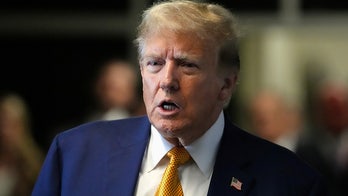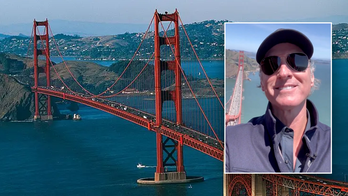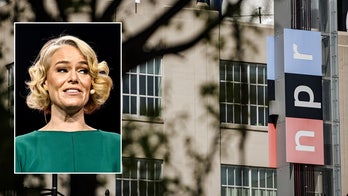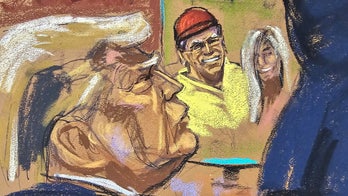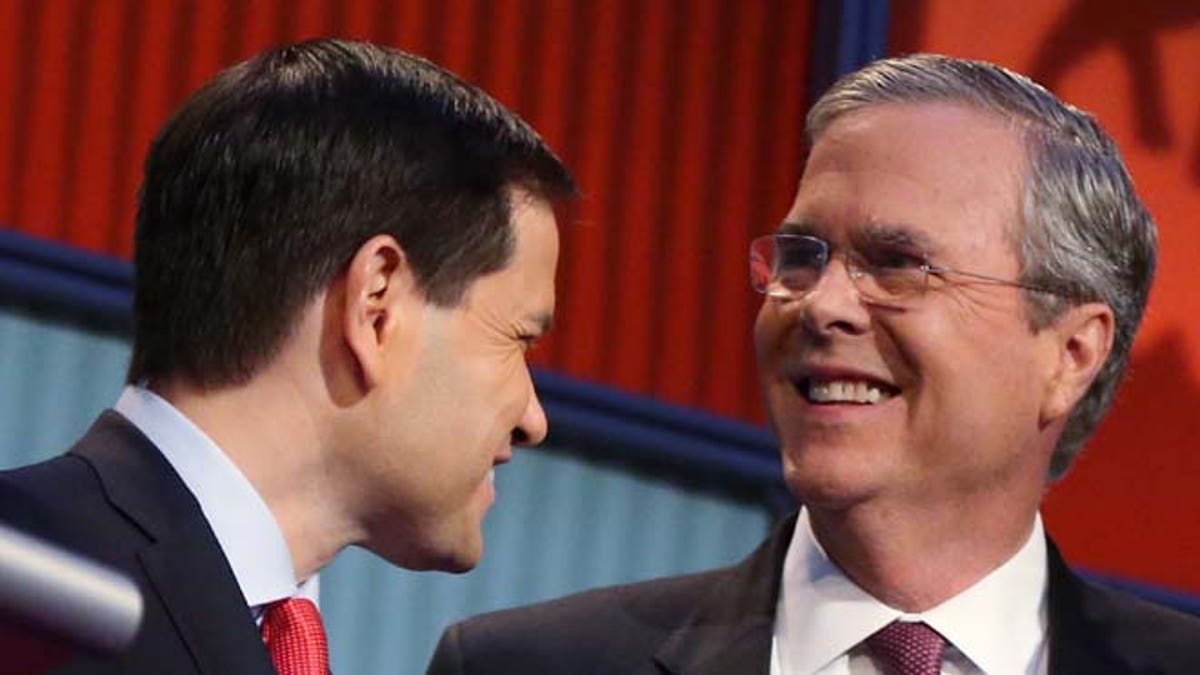
Marco Rubio and Jeb Bush during the first Republican presidential debate on Aug. 6, 2015. (ap)
They were not just friends, but mentor and mentee.
Sen. Marco Rubio and former Florida Gov. Jeb Bush were known as political bosom buddies.
Bush, 63, saw Rubio, 44, as a protégé, pushing for him in public and private as the Cuban-American rose up the Florida political ranks. In 2012, when Rubio was reportedly on GOP presidential nominee Mitt Romney’s short list of possible running mates, Bush proudly said that his mentee possessed “the intellectual acumen and the fortitude to be a good president.”
Rubio’s praise for his political beacon was no less glowing. Rubio said in 2010 that if Bush, who last held elective office in 2007 as governor, decided to go for the U.S. Senate, he would not run for it.
Fast-forward to 2015, and the high-stakes world of the presidential election, and you’ve entered the world of political frenemies.
Now, to hear Bush tell it, Rubio is a lapsed senator who is too blinded by presidential ambition to do the job he was elected to do in Congress. In televised debates, he’s directly taken Rubio to task for missing too many votes. Bush’s super PAC set up a Twitter account titled @IsMarcoWorking.
Rubio has hit back, portraying Bush, who has failed to get traction in this election, as desperate: "The only reason why you're doing it now is because we're running for the same position, and someone convinced you that attacking me is going to help you."
Friends-turned-political-enemies are nothing new in politics. Even a century ago, former president Theodore Roosevelt’s handpicked successor, William Howard Taft, became his bitter rival when the two ran against each other in 1912.
And Hillary Clinton and Barack Obama, as senators running for the Democratic presidential nomination in 2008, were seen as friendly until the race narrowed down to the two of them. They leveled attacks at each other that many found stinging.
But this election cycle, there are a few frenemies in the large field of candidates.
Despite the warm and fuzzy interaction between them in the last GOP debate, billionaire and GOP front-runner Donald Trump and Sen. Ted Cruz are also one-time-allies-turned-nasty-rivals.
The approach that Trump and Cruz had toward each other in the first few months of the campaign was almost too sugary for the world of politics. Not only did they seem go out of their way to avoid directly criticizing the other, they – especially Cruz, a Texas Tea Party favorite – seemed to go to extraordinary lengths to show an alliance. Cruz invited Trump to appear with him at the U.S.-Mexico border, and also to join him at a rally to protest the Iran nuclear deal.
But as soon as it started to seem to become a race between Cruz and Trump – in Iowa, at least – Cruz criticized the billionaire in a private fundraiser, and Trump assailed Cruz in his signature very public style.
Trump practically called Cruz a “maniac,” saying that the senator acted like one on the Senate floor and that he does not know how to get along with others in the required way to get things done.
“Politicians have fair-weather friendships,” said Cal Jillson, a longtime political analyst at Southern Methodist University in Texas. “They’re typically friendships of convenience, of mutual benefit until the next election cycle or cause, such as immigration.”
Cruz’s velvet-glove handling of Trump has included not joining the chorus of critics when the real estate mogul has offended women, Sen. John McCain for being a prisoner of war, Mexicans and Muslims — and even defending him, albeit in vague terms.
Experts have characterized Cruz’s approach to Trump not as altruistic, but tactical and self-serving.
If Trump stumbles and he dives from the crest of the GOP contenders wave, the theories go, Cruz would be the best-positioned to pick up the spoils — Trump’s supporters, who admire the candidate for his outside-D.C. rhetoric and sharp tongue.
“Trump and Cruz seem to be more about themselves more so than other people running for president,” said Matt Dallek, a political professor at George Washington University and with expertise on political history, campaigns and elections.
Then again, to wake up and think that you are the ideal person to run the world’s superpower requires a kind of ego and ambition that is outside the boundaries of most people’s psyches.
“These are [inherently] very aggressive, very self-confident, self-assured people who are going to take you out as needed, even if they smile afterward,” Jillson said.
“When they come under pressure, when there’s only one ladder that goes to the level where you want to get, you’re going to kick the guy who comes up behind you,” Jillson said. “This is especially true with the presidency — the peak of American politics.”
The Bush-Rubio frenemy status is particularly intriguing, if not surprising, to even the most longtime political observers.
"The Rubio-Bush dynamic is unusual" in the frenemies arena, Dallek said. "It's unusual that a mentor and mentee, coming from the same state, will both run for president, and both from the outset be seen as viable."
Jillson characterizes Bush’s view of his relationship with Rubio as one that included a tacit expectation of respect, respect that extended to not directly taking on his mentor if both were eyeing the same thing.
“They were friendly, Bush was the mentor and Rubio reached out and took his help – fundraisers, donors, supporters – and said ‘Thank you, sir,’” Jillson said. “Bush was senior to Rubio in terms of age and political credentials. He had fundraising and political networks drawn off his father and brother, and in that position Jeb Bush kept an eye out for the up-and-comers, the rising talent, like Rubio.”
And Rubio had honored that before.
“They were friends so long as both understood the rules, and both had the same sense of mentee-mentor,” Jillson said. “But in politics, when the moment arrives, an opportunity to be president of the United States, for many people gratitude is an emotion you cannot afford to have. You’re a fool not to take the opportunity, you just don’t know when the next one will be.”
Bush’s close friends and advisers said he was taken aback, even hurt, by Rubio’s determination to run for president even as it became clear that his friend and mentor was going to run as well.
"It’s like you’re running against your uncle for president of the company,” said Al Cardenas, a nationally powerful figure in conservative politics, and now a senior advisor in the Bush campaign. “These are things that are difficult and you both might be suited for the job. But it’s in the family, it’s a clumsy, difficult thing for outsiders to see.”
Rubio dismisses suggestions that he is being a traitor (some in the Bush camp refer to him as “Judas”), saying that it’s not personal — it’s politics.
“He’s still a friend,” Rubio said in an October interview with Fox News Latino. “We’re running for the same position, but so are a lot of other people. I’m not running against Jeb Bush, I’m running for president. I have tremendous admiration and respect for him personally. He did a great job as governor of Florida.”
But, Rubio says, these times and the presidency call for a change, for new ideas, a new face.
“This is the 21st century, we have to confront the issues of today and now,” Rubio said. “I’m not running against him or, for that matter, any other candidate in the field.”
But as quickly as friends become rivals in politics, their anger seems to fizzle once the race is over.
“When you’re playing at that level,” Jillson said, “you understand that friendships are of convenience.”

